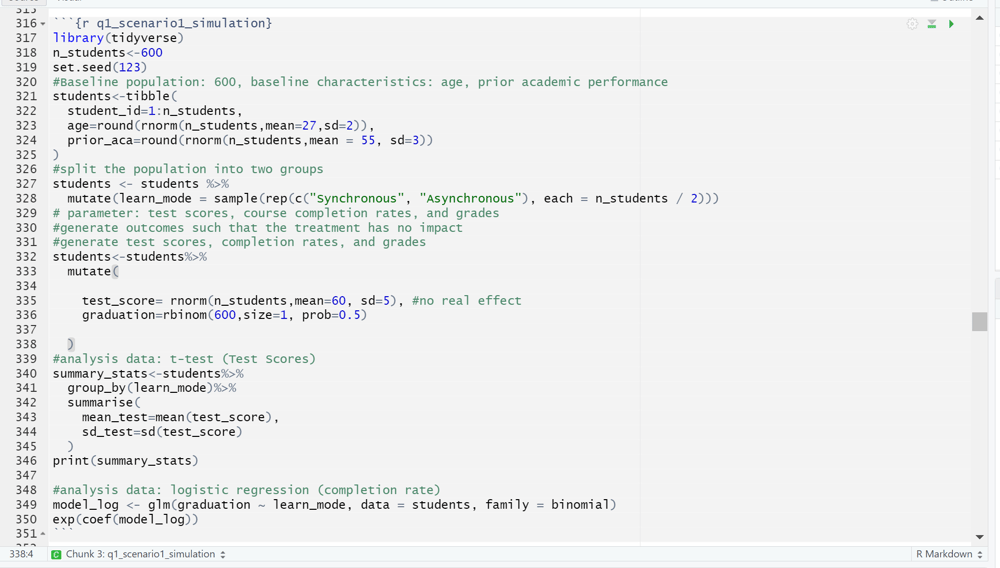Group project on
research Design
Exploring the Efficacy of Synchronized and Asynchronized Learning Modes in E-Language Education:
A Government-Sponsored Experiment in Detroit with Certification Incentives Provided by Wayne County Community College
Authors: Kody Lam, Yuyao Fan, Wenqi Qiu, Yanrui Song, Ye Tao
Key Qualities
Leadership
Initiative in Topic Selection and Direction:
Recognizing the limitations of our original subject matter, I conducted a thorough analysis of potential topics, leading to the proposition of a more impactful and experimentally robust area of study: the comparison of synchronous and asynchronous learning methods in community colleges. This shift not only reinvigorated the project with a clear, researchable focus but also ensured our efforts were aligned with pressing educational needs.
Collaboration and Communication
In our project, I fostered a culture of collaboration and communication, ensuring equitable division of work and regular, engaging Zoom discussions. Our meetings were dynamic, involving brainstorming and collective problem-solving, where I facilitated rich dialogue and integration of diverse ideas. Beyond reviewing work for consistency, we provided constructive feedback, enhancing our individual contributions into a cohesive whole. My commitment to creating an inclusive and communicative environment was instrumental in our project's success, embodying my belief in the power of teamwork and collective intelligence.
My Contribution
In the "Simulated Studies" section, I led key simulations, predicting outcomes for our research on learning modes' impact on academic success and engagement. I meticulously explored a range of scenarios, using my developed R code to underpin the study's predictive analytics. This work not only offered insights into asynchronous learning effects but also shaped the strategic direction of our study, laying a data-driven groundwork for future educational strategies. My role was crucial in addressing the challenges of optimizing e-learning, reflecting my blend of technical expertise and analytical acumen.
* Below is showing part of my simulation using R

Overview Of The Research Plan
The research designed in the document focuses on comparing the effects of synchronous and asynchronous online learning modes on student academic outcomes in Detroit's community colleges, with a particular emphasis on low-income areas. The primary aim is to address the concern of low academic completion rates and to understand which mode of e-learning might improve student engagement, academic performance, and completion rates. The study is structured to investigate two main research questions:
1. Does the mode of online learning (synchronous vs. asynchronous) significantly impact students' academic success in terms of test scores and course completion rates?
2. Does the mode of online learning affect the level of student engagement and their consequent academic performance and retention in the course?
The research methodology includes collecting data from various sources and implementing a simulation study to predict the potential outcomes of the experiment. The simulation, particularly crafted using R code, models two scenarios for each question: one depicting no significant difference between the two learning modes and another suggesting a considerable advantage for asynchronous learning in terms of both academic success and engagement levels.
The outcome of this research will provide insights into the effectiveness of synchronous and asynchronous learning methods. It aims to guide educational strategies and policies in community colleges to enhance learning experiences and outcomes for students from disadvantaged backgrounds. The research combines empirical data collection with advanced simulation techniques to forecast and analyze the potential impact of the learning modes, making it a robust and comprehensive study in the field of educational technology and learning methodologies.